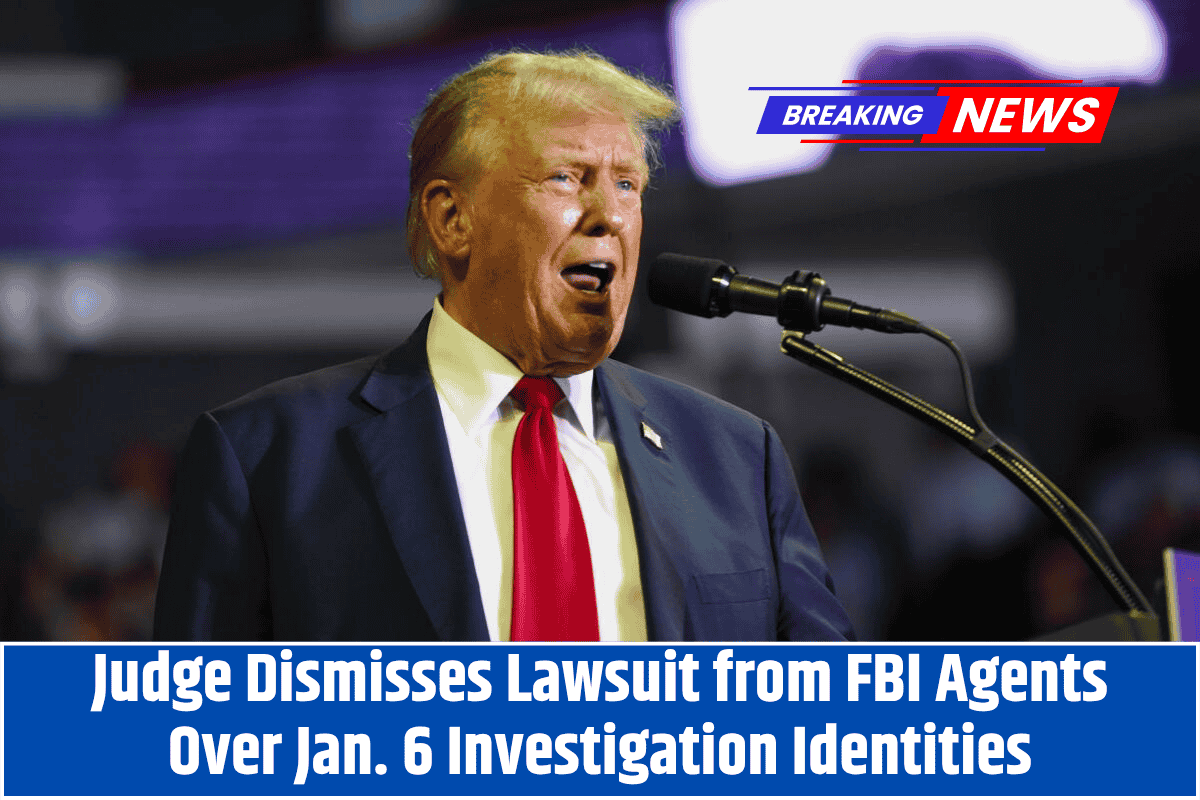In a significant legal ruling, a federal judge in Washington, D.C., has granted the Trump administration’s request to dismiss a lawsuit filed by a group of FBI agents who sought to prevent the public release of their identities in connection with the investigations into the January 6 Capitol attack.
The case was dismissed by U.S. District Judge Jia M. Cobb, who ruled that the plaintiffs, a group of anonymous FBI agents, lacked standing and failed to provide sufficient evidence to support their claims.
The FBI Agents’ Lawsuit
The lawsuit was filed by two groups of FBI agents in February, who were concerned that their identities might be disclosed publicly due to their involvement in the investigations related to the January 6 attack.
The agents feared retaliation and potential harm if their roles were revealed, as some individuals involved in the Capitol riot had called for the agents to be “doxxed” or worse. The plaintiffs argued that there was a real risk of physical harm, and they sought to prevent the Trump administration from releasing their names.
However, the case was filed amid a tumultuous political climate following President Trump’s second inauguration. Tensions escalated when the Department of Justice demanded that the FBI identify the agents who had worked on the January 6 investigations.
This led to concerns among the agents that their identities would be exposed, making them targets for retaliation.
Judge Cobb’s Ruling
Judge Cobb’s ruling emphasized that the plaintiffs’ claims were too speculative. She noted that the agents had failed to demonstrate that the Trump administration was planning to disclose their identities.
The judge’s order pointed out that, despite the initial chaos, “discovery revealed no evidence” to support the claim that the administration was about to make the agents’ identities public.
“The Court must therefore dismiss Plaintiffs’ disclosure-related claims because Plaintiffs have not established that they have standing to bring them,” Cobb wrote.
The judge further stated that while Trump had made derogatory remarks about FBI personnel, these statements did not indicate any intention to publicly release the agents’ identities.
First Amendment and Retaliation Claims
The FBI agents also alleged First Amendment retaliation, claiming that the Department of Justice’s internal investigation into their involvement in the January 6 cases was politically motivated.
They argued that the investigation was launched because the agents were perceived as disloyal to the administration. Additionally, the agents contended that being investigated had adverse impacts on their careers.
However, Judge Cobb found that these claims could not be assessed, as they were not part of the amended complaint filed by the plaintiffs. The judge noted that the plaintiffs had only mentioned hypothetical, future employment actions, which she ruled were not sufficient to warrant a legal challenge. The First Amendment claims were also dismissed on the grounds that the plaintiffs had failed to demonstrate that the adverse actions they feared were anything more than speculative.
Reaction from the FBI Agents Association
In response to the ruling, the FBI Agents Association expressed disappointment, stating that they were reviewing their legal options. The association emphasized that the safety and protection of FBI agents involved in sensitive investigations are of the utmost importance.
“We filed this case to support and protect the dedicated FBI agents and employees who were assigned to investigations related to activities on January 6, 2021,” the association said in a statement.
This ruling marks a setback for the FBI agents who sought to block the potential release of their identities in the aftermath of the January 6 investigations. While the judge acknowledged the agents’ concerns about safety and retaliation, she found that the claims were too speculative and lacked the necessary legal standing.
This case highlights the complex balance between protecting the safety of law enforcement personnel and ensuring that legal claims are based on concrete evidence, not hypothetical concerns.






